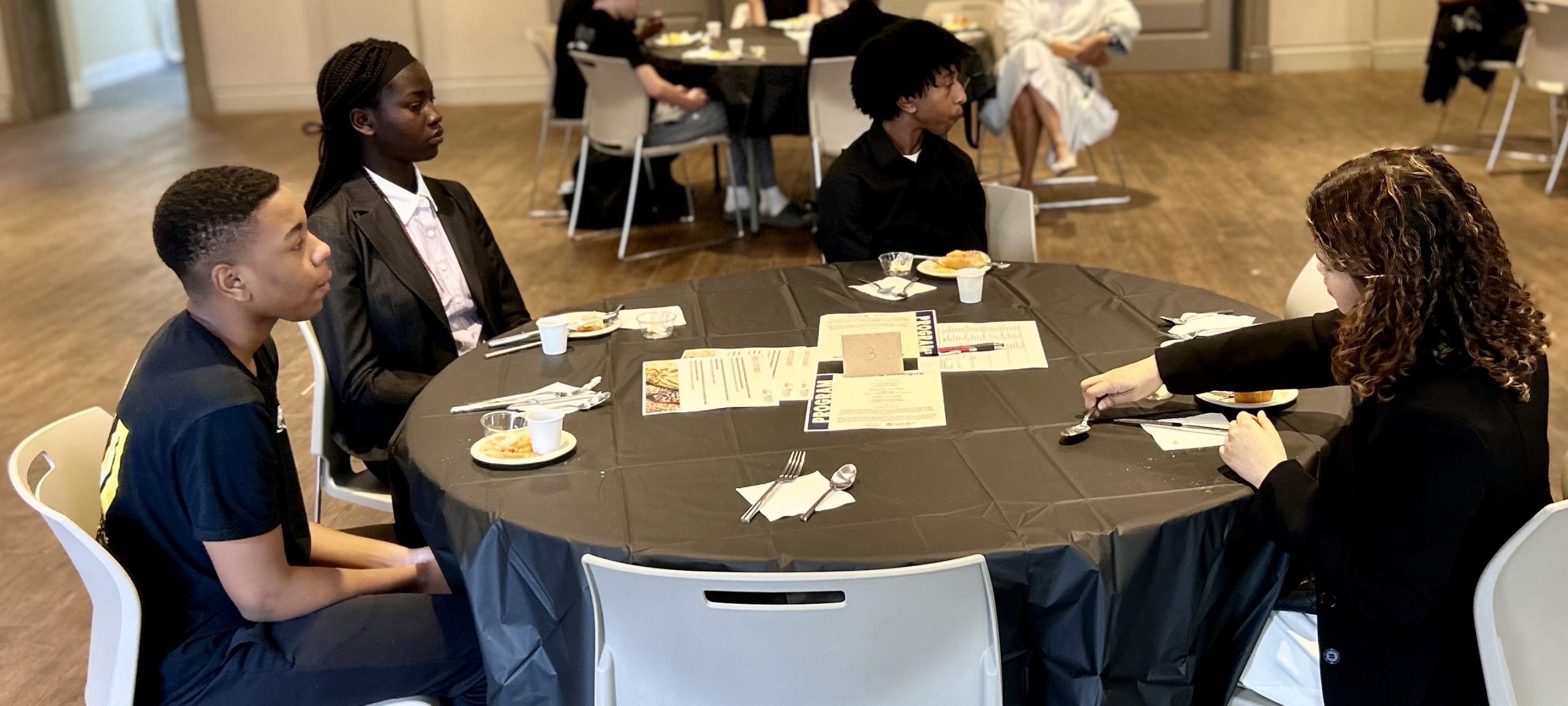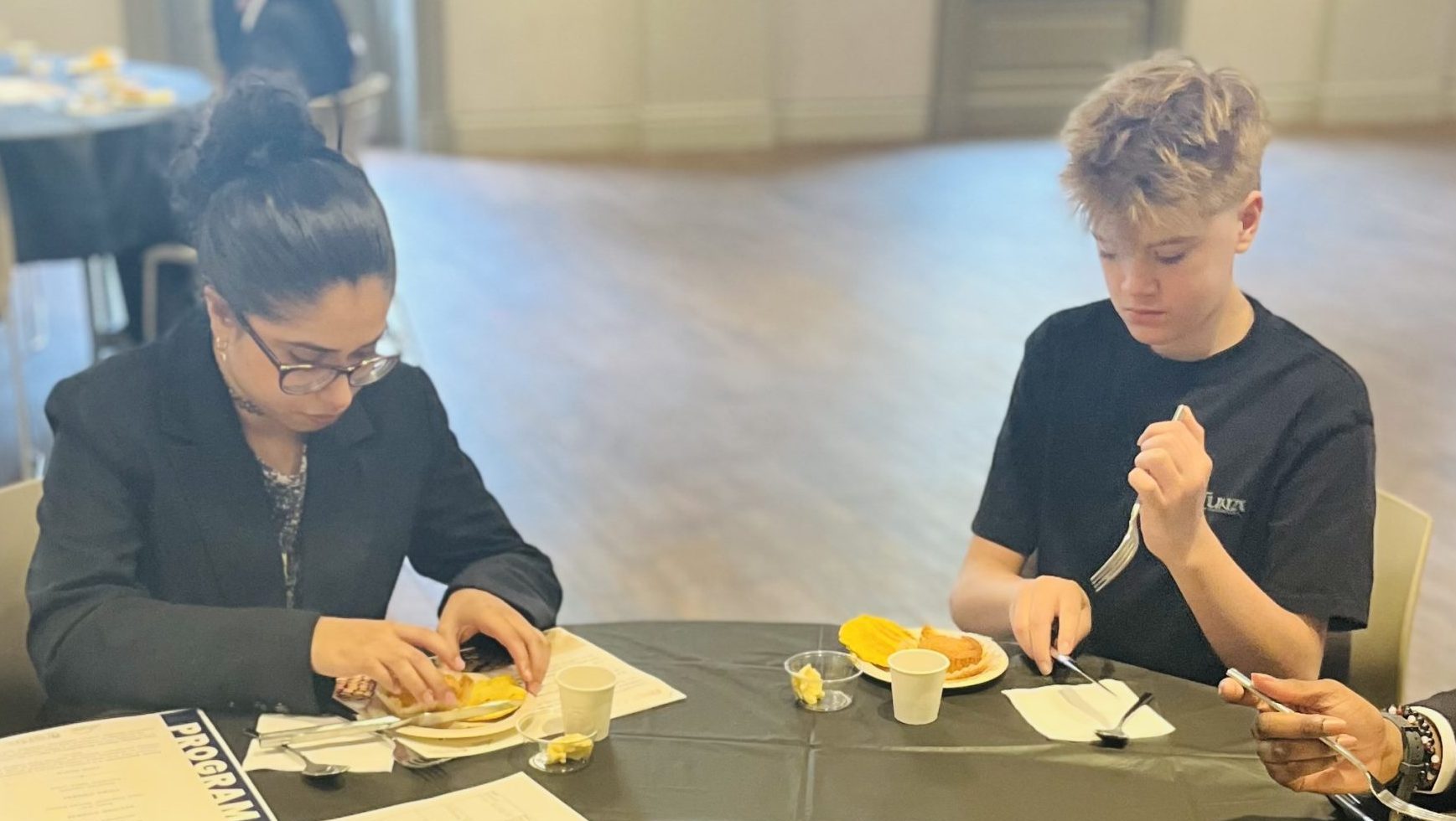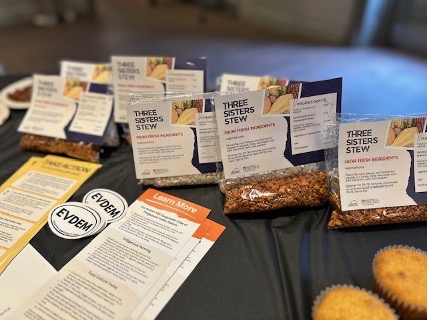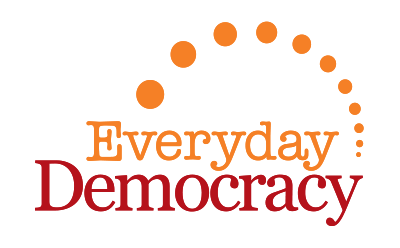Arts, Culture, & Democracy
Youth Break Bread and Build Democratic Skills Through Dinner & Dialogue
At the heart of democracy is connection—and food has always been one of its oldest and most powerful tools. On April 27, Everyday Democracy’s Dinner & Dialogue in Westport, CT brought high school students together for an afternoon of shared meals and shared meaning, centered on the deep roots of Afro-Indigenous food traditions.
Students sat down to a three-course meal focused on corn, beans, and squash—three familiar ingredients they’ve likely encountered countless times. But this gathering invited them to see these foods not just as staples on their plates, but as carriers of history, memory, and power. Known as the “Three Sisters” in many Indigenous communities, these ingredients have historically been planted together to nourish and support each other, with the corn providing a stalk for the beans to climb, the beans adding nitrogen to the soil, and the squash’s broad leaves suppressing weeds and conserving moisture.

Learning From Afro-Indigenous Food Traditions
Through storytelling from Ramin Ganeshram (culinary historian and Executive Director of the Westport Museum) and Clan Mother Shoran Waupatukuay Piper (tribal leader of the Golden Hill Paugussett Tribe), students learned the stories behind these everyday foods.
Corn, first grown by Native Americans, was a sacred crop—but later became a commodity tied to colonization and the Atlantic slave trade. Squash and pumpkins, which had helped Native Americans survive harsh winters for centuries, were initially looked down upon by European settlers. They were eventually adopted into the colonial diet and today appear in everything from pumpkin pie to seasonal lattes, a transformation that often hides their original cultural meaning.
Beans, with their global reach and deep roots in both Indigenous and African diasporic cuisines, became a symbol of cultural connection. Their popularity at the Dinner & Dialogue—where bean dishes were among the first to be finished—underscored the continued resonance and adaptability of these traditions.
As they ate, students reflected on how food connects to family, memory, and cultural identity. “I would say this experience was very impactful and taught me similarities between my own culture and others,” one attendee shared. Many noted how the dishes were prepared differently than they’re used to—offering a powerful reminder that even common foods hold unique stories depending on who’s cooking and who’s remembering.

The meal itself became a space for dialogue—about resilience, community, and the power to shape the future. As one student put it, “It would be nice to go into middle schools and teach them about different Indigenous people and cultures.”
The evening concluded with a debrief and a call to action, inviting students to extend their learning into tangible civic activities. They left with clear next steps—making direct links between reflection, action, and advocacy. Commitments included:
- Cooking “Three Sisters” recipes and sharing what they learned with family and friends.
- Learning more about where their food comes from—including the histories behind pantry staples and crops introduced through colonization.
- Changing what happens after the meal by composting or reducing food waste— echoing the innovative ways many Indigenous communities ensured little to no waste.
By the end of the evening, students weren’t just full—they were fueled: with knowledge, with purpose, and with a sense of their role in shaping a more just and inclusive democracy.
Thank You to Our Partners
 This event was made possible through the generous support of CT Humanities, the William Caspar Graustein Memorial Fund, and the Fairfield County’s Community Foundation. We are especially thankful for the partnership of the Westport Museum for History & Culture, the wisdom and leadership of Clan Mother Shoran Waupatukuay Piper, and the meaningful participation of Bridgeport Caribe Youth Leaders.
This event was made possible through the generous support of CT Humanities, the William Caspar Graustein Memorial Fund, and the Fairfield County’s Community Foundation. We are especially thankful for the partnership of the Westport Museum for History & Culture, the wisdom and leadership of Clan Mother Shoran Waupatukuay Piper, and the meaningful participation of Bridgeport Caribe Youth Leaders.
We extend our heartfelt thanks to all the students, families, and community members who took part in this powerful conversation. We look forward to continuing this journey toward a more just and inclusive democracy—together.
